Presentation for MCSP country program staff on highlights and considerations from the World Health Organization 2016 recommendations on antenatal care for a positive pregnancy experience. […]
Presentation: A Positive Pregnancy Experience
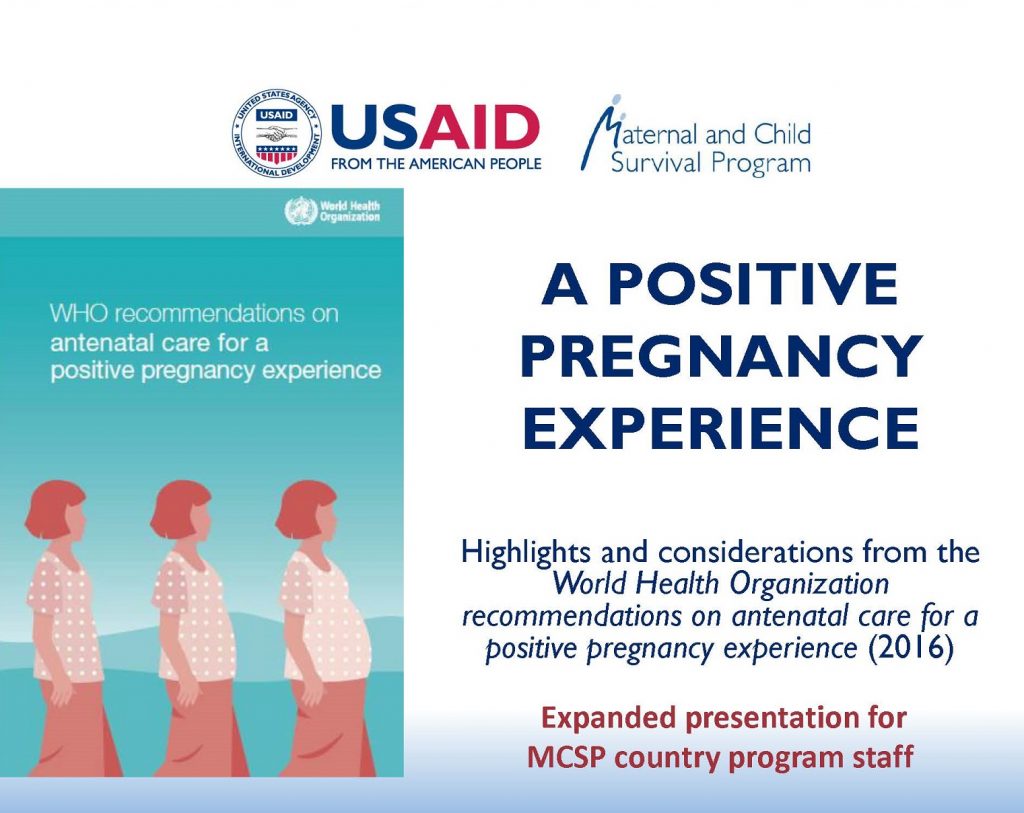

Presentation for MCSP country program staff on highlights and considerations from the World Health Organization 2016 recommendations on antenatal care for a positive pregnancy experience. […]
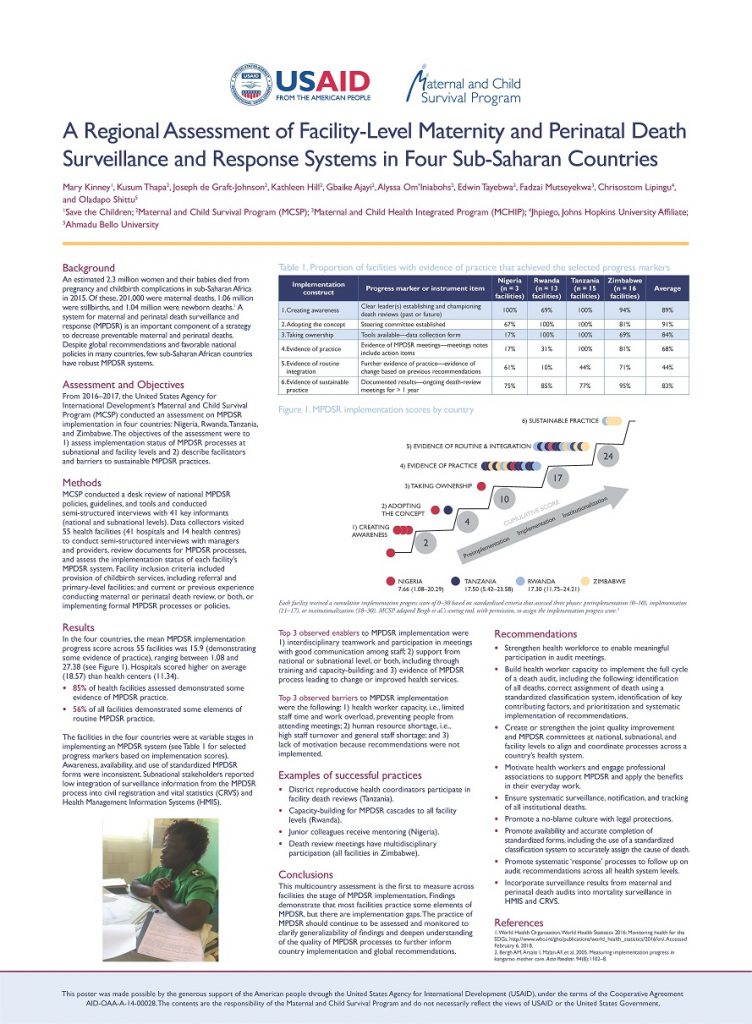
Poster illustrating the assessment, objectives, methods, and results of an assessment of facility-level maternity and perinatal death surveillance and response systems in four sub-Saharan countries: Tanzania, Nigeria, Rwanda and Zimbabwe. Includes nine recommendations. […]
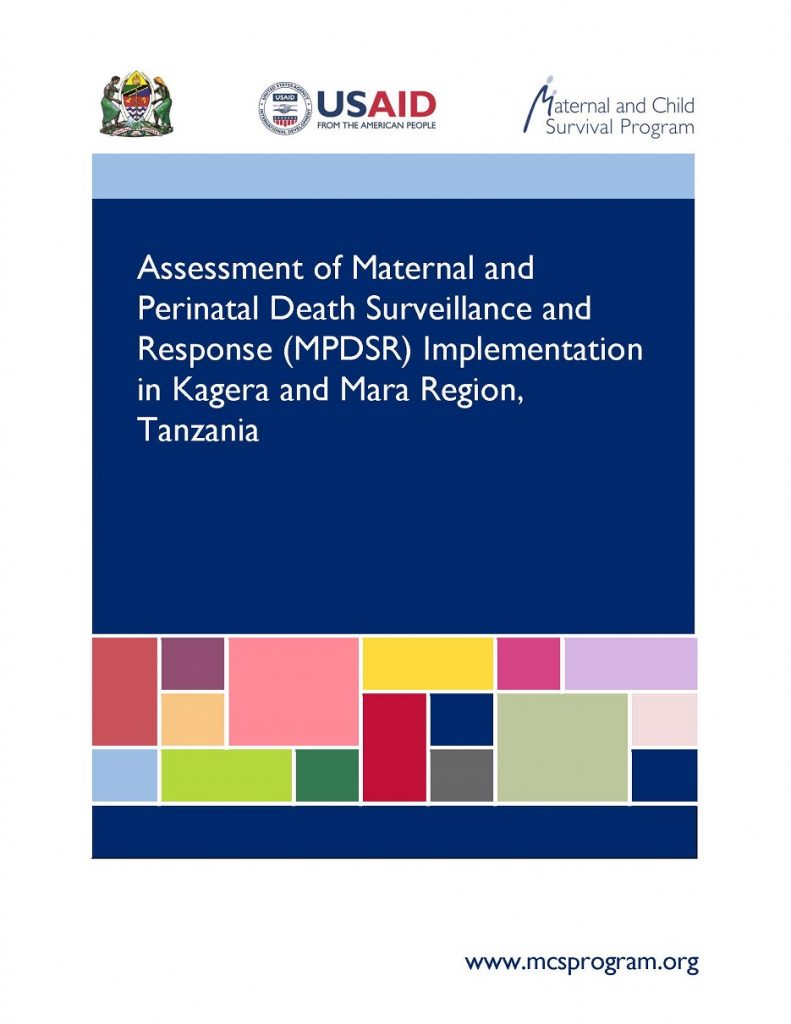
There is global consensus that accurate information about causes of death through mortality audits is needed to help inform efforts to end preventable maternal and perinatal deaths. Tanzania’s Ministry of Health, Community Development, Gender, Elderly and Children (MOHCDGEC) and MCSP aimed to document experiences to date in implementing maternal death review, perinatal death review, and/or […]
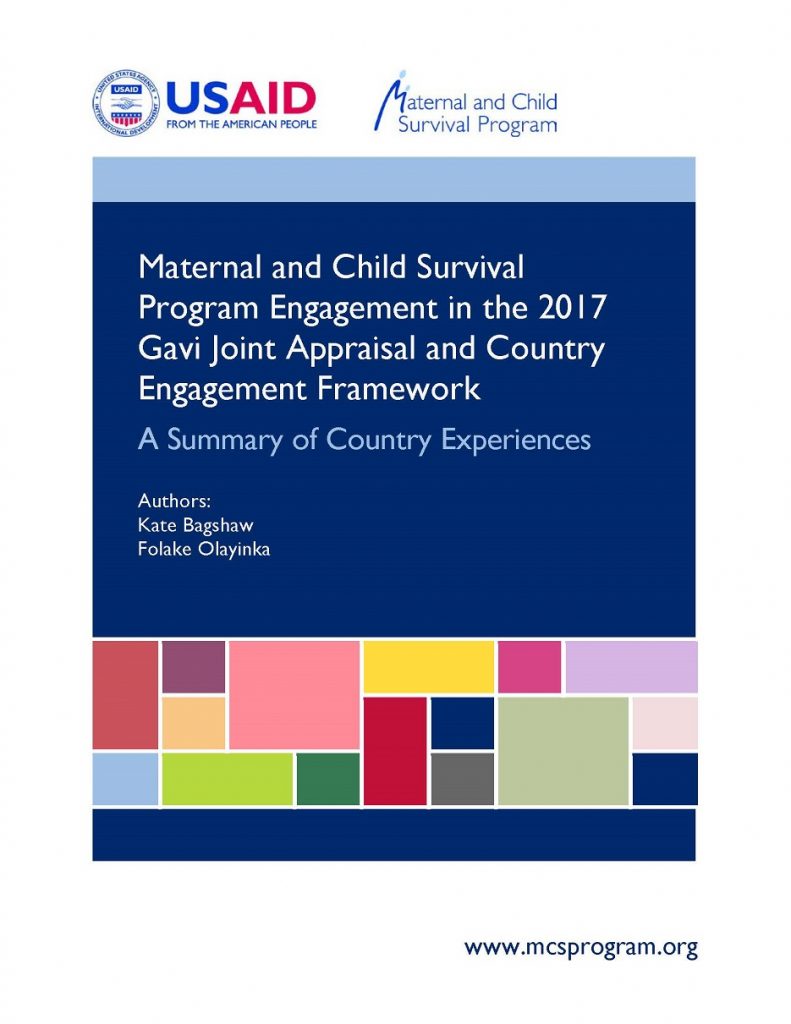
To assess the implementation progress and performance of Gavi’s support for new and underutilized vaccines and health system strengthening efforts, as well as its contribution to improved immunization coverage and equity, Gavi countries engage in regular review processes — either joint appraisals (JAs) or country engagement framework (CEF) reviews. This report provides an overview of […]
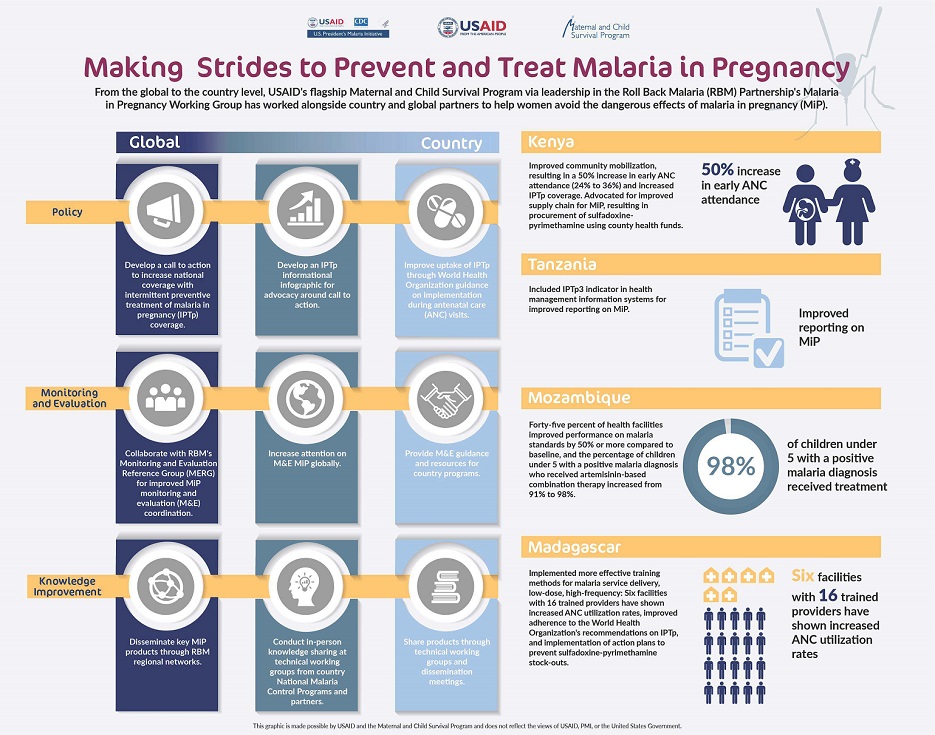
From the global to the country level, MCSP via leadership in the Roll Back Malaria Partnership’s Malaria in Pregnancy Working Group has worked alongside country and global partners to help women avoid the dangerous effects of malaria in pregnancy. […]
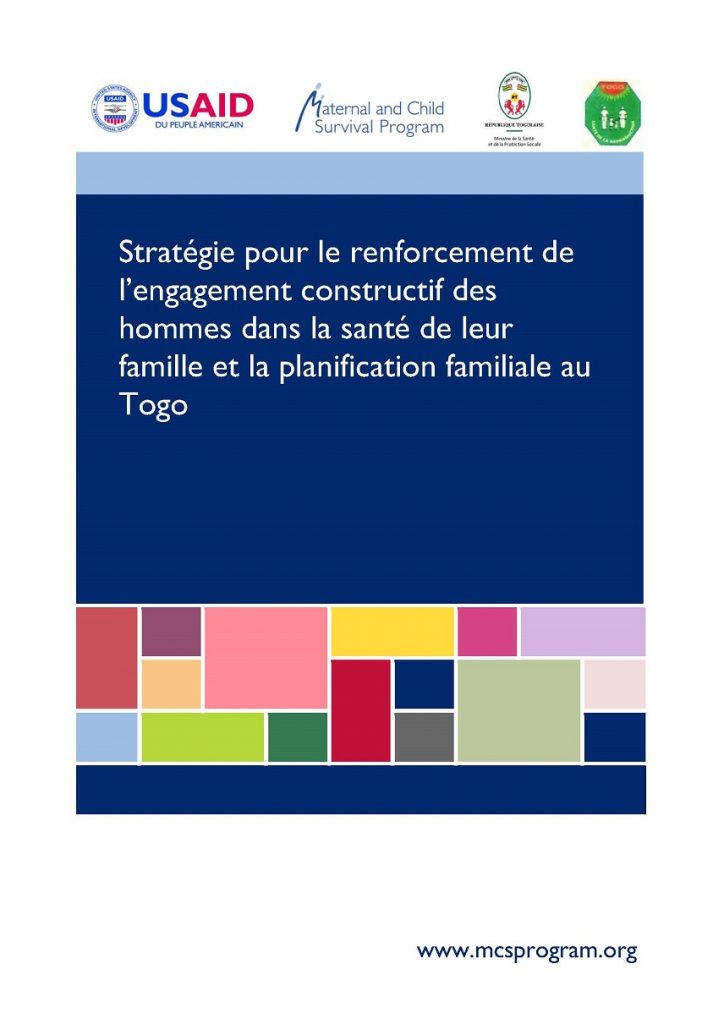
Report (in French) on strengthening male engagement in family health and family planning in Togo. […]
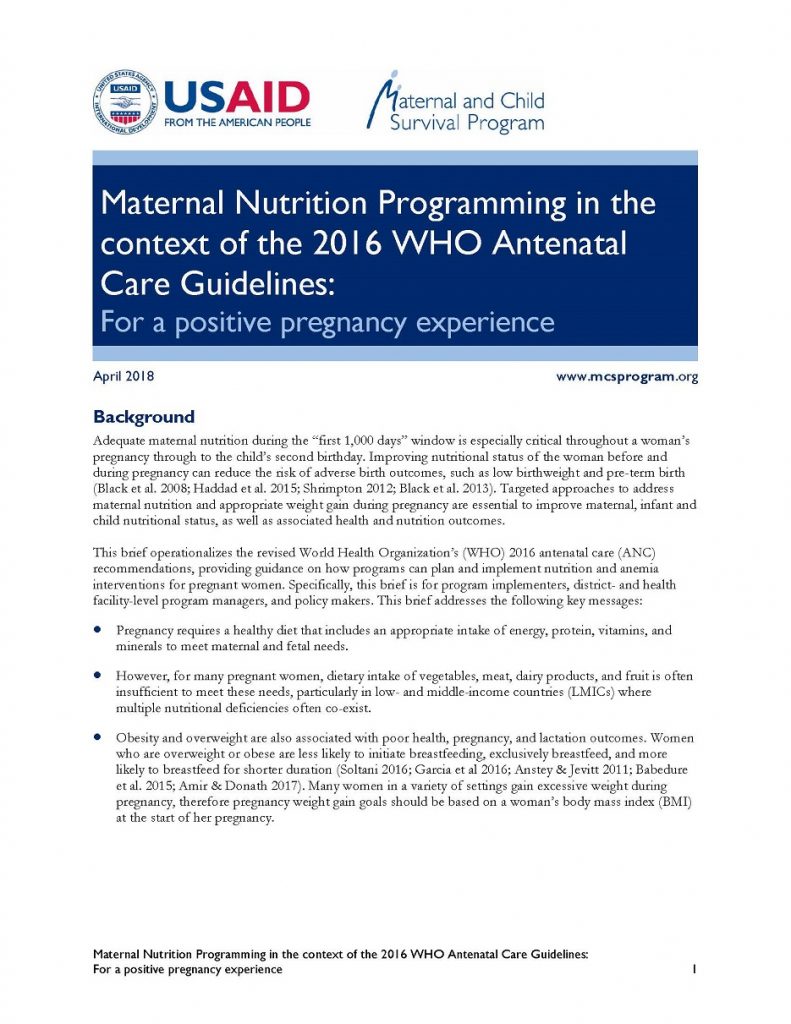
This brief operationalizes the revised World Health Organization 2016 antenatal care recommendations, providing guidance on how programs can plan and implement nutrition and anemia interventions for pregnant women. It is intended for program implementers, district- and health facility-level program managers, and policy makers. […]
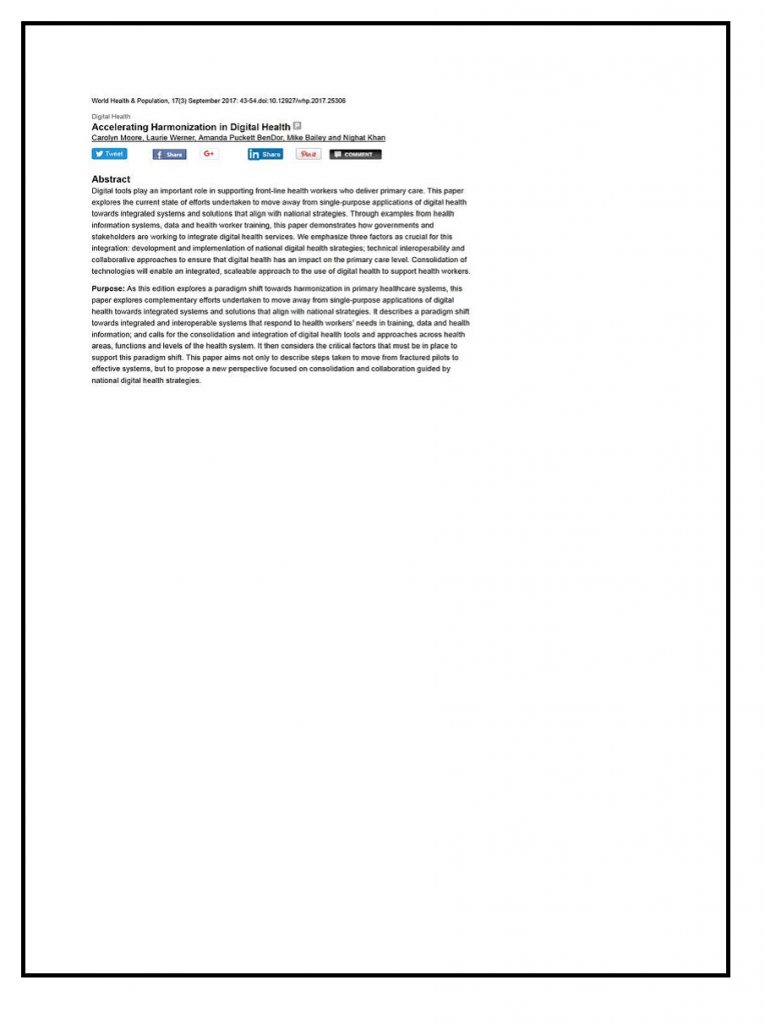
This MCSP co-authored article – published in the journal World Health & Population – explores the current state of efforts undertaken to move away from single-purpose applications of digital health towards integrated systems and solutions that align with national strategies. Through examples from health information systems, data and health worker training, the authors demonstrate how governments and stakeholders are […]
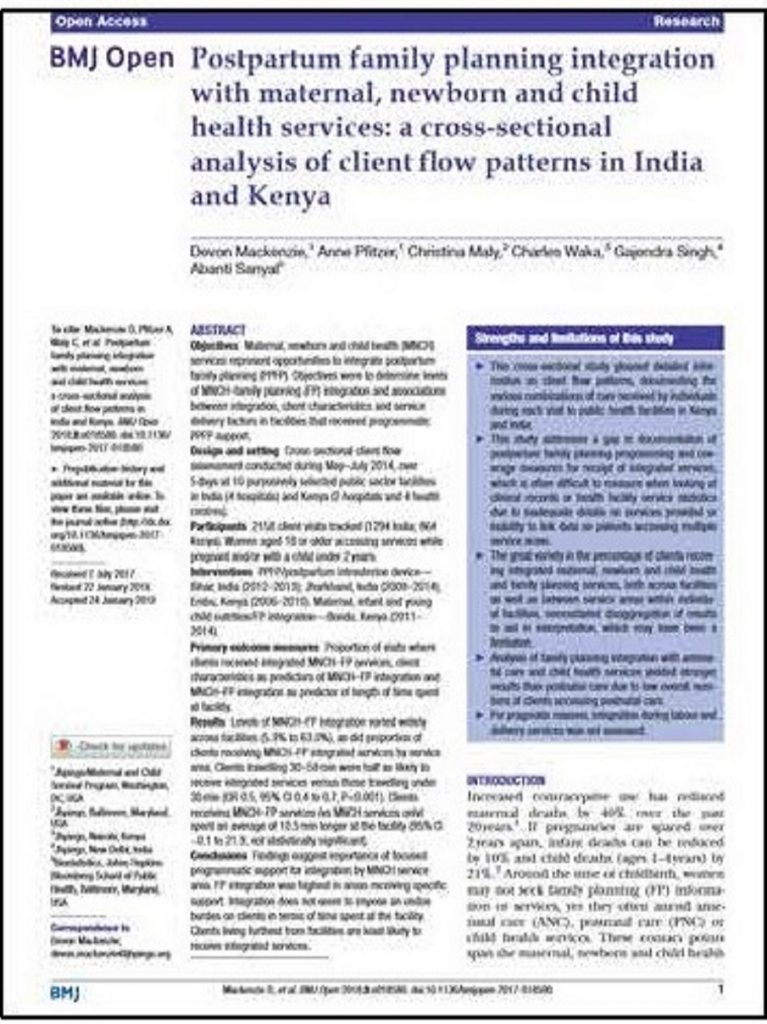
This MCSP co-authored article – published in BMJ Open journal – illuminates the degree of maternal, newborn and child health (MNCH) – family planning integration, as well as associations between integration, client characteristics, and service delivery factors in facilities that received programmatic postpartum family planning support. Findings suggest importance of focused programmatic support for integration by MNCH service area. Family […]
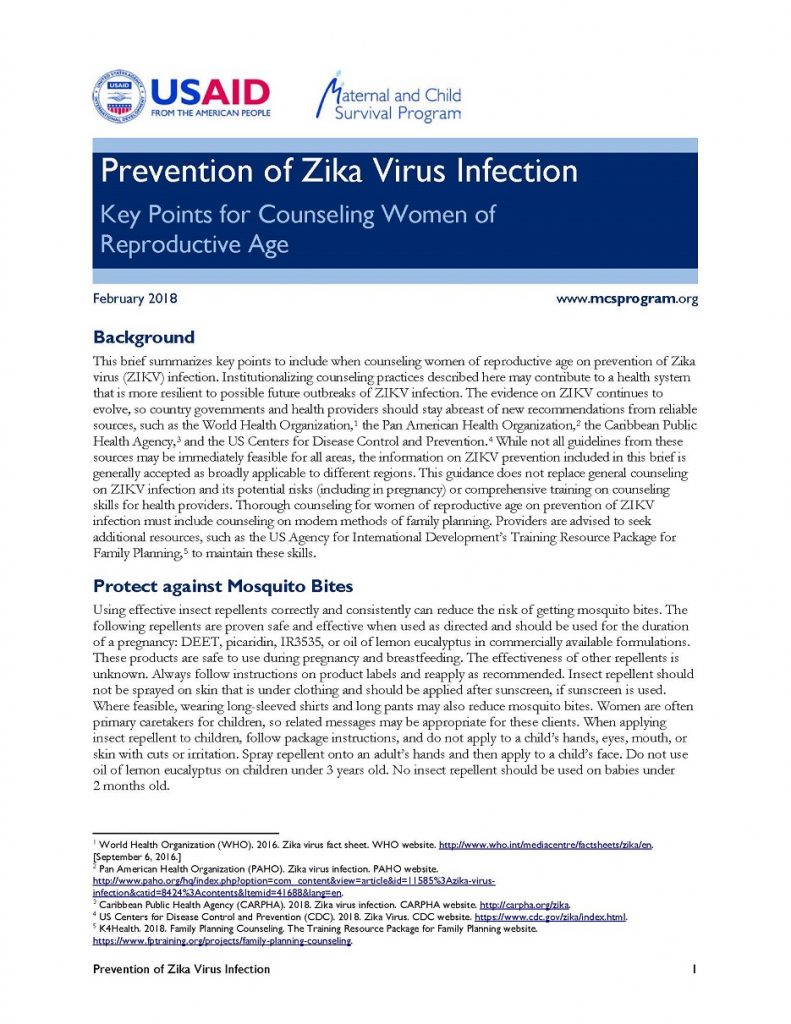
This brief summarizes key points to include when counseling women of reproductive age on prevention of Zika virus (ZIKV) infection. Institutionalizing counseling practices described here may contribute to a health system that is more resilient to possible future outbreaks of ZIKV infection. While not all guidelines from these sources may be immediately feasible for all […]